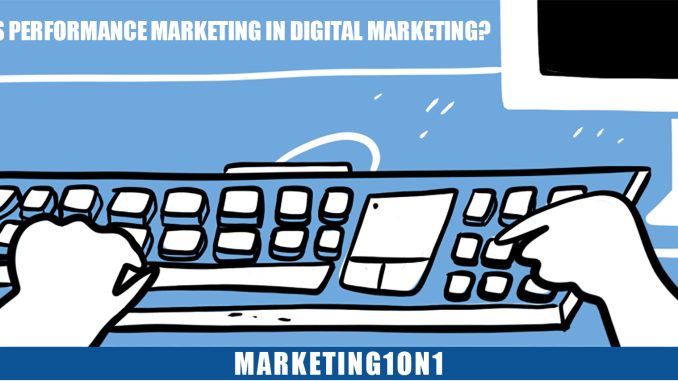
In a world where technology has drastically changed how marketing is done, some businesses have struggled to keep up. If you’re one of those businesses, it’s time to consider performance marketing in your digital marketing strategy. But what is performance marketing? In short, it’s a type of marketing that focuses on results rather than traditional marketing methods, such as brand awareness or lead generation. In other words, with performance marketing, you only pay for the results that you get from your campaigns. This could be anything from sales to website traffic or even engagement. If you’re looking for a more modern and effective way to market your business, read on to learn more about performance marketing and how it can benefit your business.
What is performance marketing?
Performance marketing is a sub-discipline of that focuses on driving specific actions from users, such as clicks, conversions, or purchases.
Performance marketers often use data and analytics to track the performance of their and optimize them for better results. They may also use to try out different versions of their ads or landing pages to see which performs better.
Performance marketing can be a powerful tool for driving growth and sales, but it’s important to understand how it works and how to measure your results before getting started.
What are the benefits of performance marketing?
There are many benefits of performance marketing in digital marketing. By aligning your marketing strategies with specific business objectives, you can more accurately track and measure your return on investment (ROI). This type of marketing also allows you to test different creative approaches and strategies quickly and efficiently to see what works best for your business. Additionally, focusing on performance-based activities can help drive overall growth for your company by generating leads and sales.
What are the challenges of performance marketing?
There are several challenges that come along with performance marketing in digital marketing. Perhaps the most difficult challenge is proving performance-based activities’ ROI (return on investment) to clients and stakeholders. With so many variables at play, it can be tough to show how your performance-based marketing efforts have directly led to increased sales or conversions.
Another common challenge is managing client expectations. Oftentimes, clients will have unrealistic expectations for what performance marketing can achieve. It’s important to set realistic expectations from the start and manage those expectations throughout the campaign.
Finally, one of the biggest challenges facing performance marketers is staying up-to-date with the latest trends and changes in the industry. With new platforms, technologies, and strategies emerging all the time, it can be difficult to keep up and ensure that your campaigns are using the best possible methods.
How to measure success in performance marketing?
There are a number of ways to measure success in performance marketing. One way is to track the number of conversions or sales generated from your marketing campaigns. Another way to measure success is to track the cost per conversion or the amount you spend on marketing divided by the number of conversions. You can also track other metrics, such as leads generated, click-through rates, and web traffic.
Case studies
Performance marketing is a digital marketing strategy that focuses on achieving specific objectives, such as sales or leads. It is results-oriented, and the are usually measures of success, such as conversion rate or cost per acquisition (CPA).
Performance marketing can be used in various digital marketing channels, such as search engine marketing (SEM), , display advertising, social media marketing, and email marketing. The main goal is to drive traffic to a website or landing page and convert that traffic into desired actions, such as sales or leads.
To be successful, performance marketers need to deeply understand how different digital marketing channels work and how they can achieve specific objectives. They also need to be able to track KPIs and analyze data to optimize their campaigns for better results.
Conclusion
In conclusion, performance marketing in digital marketing is a great way to measure and improve your online marketing campaigns. You can optimize your campaigns for better results by tracking conversions and other key metrics. Additionally, performance marketing provides transparency into the effectiveness of your digital marketing efforts, so you can make informed decisions about where to allocate your resources.

Leave a Reply